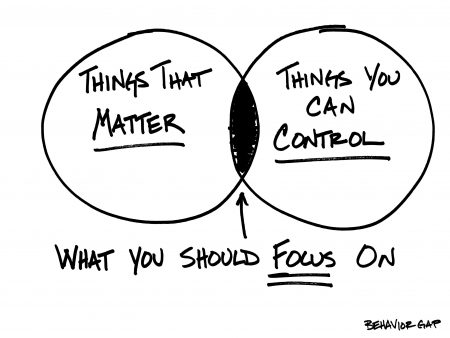Lottomatica Registration and Signing Up
What is Lottomatica?
Lottomatica is Italy’s leading online betting site and was launched in 2002. It offers a wide range of exciting sports betting products as well as online casino games. It is a highly safe and secure platform for online transactions, making it a reliable online gaming experience.
Registration Process at Lottomatica
Creating an account at Lottomatica is very straightforward.
- Visit the Lottomatica website.
- Click ‘Register’ and fill in the required information.
- Verify your account using the code sent to your mobile or email.
- Agree to the website’s terms and conditions.
- Once the registration is completed, a confirmation email will be sent to you.
Benefits of Signing Up at Lottomatica
Signing up at Lottomatica has several benefits:
- Minimal Documentation: All you need to do is provide your name, email address, and other basic information to become a member at Lottomatica.
- Secure Banking: Lottomatica offers a secure and reliable banking experience with a wide range of payment methods.
- Bonuses and Promotions: Lottomatica offers its customers a wide range of bonuses and promotions, giving players more opportunities to win big!
- Range of Games: Lottomatica offers its players a wide range of sports betting, casino and live dealer games.
- Customer Support: Lottomatica provides its customers with round-the-clock customer support to ensure a smooth and enjoyable gaming experience.
Conclusion
In conclusion, signing up at Lottomatica is a very straightforward process, and offers a secure and reliable gaming experience. It is a highly reputable online gaming site and offers a wide range of betting, casino and live dealer games. With great bonuses and promotions and round-the-clock customer support, signing up at Lottomatica is sure to give players the best gaming experience.
What documents do you need to register for Lottomatica?
In order to register for Lottomatica, you will need a valid government-issued ID (passport, national ID card, etc.), your current residential address, and your bank details.
What is the minimum age requirement to register for Lottomatica?
The minimum age requirement to register for Lottomatica is 18 years old.
What is the legal age requirement to buy a lottomatica ticket?
The legal age requirement to buy a lottomatica ticket varies depending on the region. Generally, the minimum age requirement to purchase a ticket is 18 years old.
What age do you have to be to play the lottery in Italy?
In Italy, the minimum age to buy a lottery ticket is 18 years old. Anyone under the age of 18 cannot purchase lottery tickets or play the lottery.
What other countries have legal gambling ages for the lottery?
Canada: 18-19
Austria: 18
Belgium: 21
Denmark: 18
Finland: 18
Germany: 18
Malta: 18
Netherlands: 18
Sweden: 18
Switzerland: 18
United Kingdom: 16
Please note that this list may not be exhaustive and different countries may have different laws and regulations regarding the legal age for lottery gaming.
What is the minimum legal gambling age in the United States for the lottery?
The minimum legal age for lottery in the United States is 18 years old. While some states may have different minimum ages for certain lottery games, the general rule of thumb is 18 for the purchase of lottery tickets or gaming activities.
What is the legal minimum gambling age in Nevada?
The legal minimum gambling age in Nevada is 21. All persons under the age of 21 are not allowed to gamble or participate in gaming activities at casinos.
What is the legal minimum drinking age in Nevada?
The legal minimum drinking age in Nevada is 21. Any person under the age of 21 is not allowed to consume alcohol in the state of Nevada.
What is the legal drinking age in Las Vegas, Nevada?
The legal drinking age in Las Vegas, Nevada is 21. People aged 21 and over can purchase and consume alcohol in Las Vegas.
What is the per se BAC limit for Nevada?
The per se BAC limit for Nevada is 0.08%. Any person found operating a motor vehicle with a BAC above the legal limit of 0.08% can be cited for Driving Under the Influence (DUI).
What is the BAC limit for a minor in Nevada?
In Nevada, the BAC limit for a minor is 0.02 percent. Any person found to be driving a motor vehicle with a BAC of 0.02 percent or more is driving under the influence (DUI) and can be punished accordingly.
What are the penalties for a minor driving with a BAC of 0.02 or higher in Nevada?
In Nevada, the penalties for a minor under 21 driving with a BAC of 0.02 or higher is an automatic 12-month driver’s license suspension, a minimum fine of $400, up to 6 months in jail, and 48-96 hours of community service.
What is the minimum fine for a minor driving with a BAC of 0.02 or higher in Nevada?
The minimum fine for a minor driving with a BAC of 0.02 or higher in Nevada is $400. In addition, they may face other penalties such as license suspension, jail time, and community service hours.
What is the legal blood alcohol concentration limit for driving in Nevada?
The legal driving blood alcohol concentration (BAC) limit for drivers over the age of 21 in Nevada is 0.08%. Any motorist found operating a vehicle with a BAC above the legal limit is considered driving under the influence (DUI) and will face penalties accordingly.
What is the DUI limit in Nevada?
In Nevada, it is illegal for a person to operate a vehicle with a blood alcohol concentration (BAC) of 0.08% or higher. A BAC of 0.05% or more will result in the suspension of driving privileges. A BAC of 0.08% or more will result in much more serious penalties.
What is a DUI charge in Nevada?
In Nevada, driving under the influence (DUI) is defined as driving a vehicle with a blood alcohol concentration (BAC) level of .08% or greater or being impaired to such a degree as to be unable to drive safely. A person can also be charged with a DUI if they are driving while under the influence of a controlled substance or any other drug. Penalties for DUI convictions range from up to six months in jail and/or fines, to more serious charges such as probation and vehicle license suspension or revocation.
What is the legal limit for driving with a DUI in Nevada?
In Nevada, it is illegal to operate a motor vehicle while under the influence of alcohol. The legal limit is 0.08 blood alcohol content (BAC). Driving under the influence with a BAC of 0.08 or higher is considered a criminal offense and can be charged as a misdemeanor or a felony. Penalties for DUI can range from license suspension and/or a jail sentence up to several years in prison.
What is the fine for a first-time DUI in Nevada?
The minimum fine for a first-time DUI in Nevada is $400. Additionally, drivers may face an imprisonment of up to 6 months, license suspension or revocation for 90 days, completion of an alcohol education and treatment program, installation of a breath alcohol ignition interlock device, and community service.
What are the penalties for a first-time DUI in Nevada?
For a first-time DUI in Nevada, the penalties can include fines of up to $1,000, driver’s license suspension of up to one year, completion of a DUI school, up to six months in jail, and community service. Additionally, the court may require individuals to install an ignition interlock device on their vehicle.
What is the jail time for a first-time DUI in Nevada?
The jail time for a first-time DUI in Nevada can range from two days to six months, depending on the severity of the offense. Additionally, first-time offenders may have their license suspended for 90 days and may be imposed to pay fines ranging from $400 to $1,000 depending on the circumstances.
What are the penalties for a DUI in Nevada?
In Nevada, DUI penalties will vary depending on the severity of the offense, the driver’s criminal history, and whether or not there are any aggravating factors such as a high blood alcohol content (BAC) level. Generally, penalties for a first-time DUI offense include a mandatory court appearance and could include jail time up to 6 months, fines up to $1,000, and a 90-day license suspension. For a second or subsequent offense, penalties can include jail time up to 6 years, fines up to $5,000, and a 1-year license suspension. There may also be additional fees such as court-ordered classes or community service.
What is the minimum jail time for a DUI in Nevada?
The minimum jail time for a DUI in Nevada depends on the severity of the offense and the individual’s prior criminal record. For a first offence DUI, a minimum of 2 days jail time will be imposed. For subsequent offences, the minimum jail time can increase to up to 6 months. Additionally, drivers may incur fines up to $1,000, be required to complete an alcohol education program, and be subject to a 90 day license suspension.
What is the maximum jail time for a DUI in Nevada?
The maximum jail time for a DUI in Nevada is six months for a first offense. Subsequent offenses may be punished with a jail sentence of up to one year. Additionally, a person can be required to pay fines up to $2,000 and have their license suspended for up to a year.
What is the minimum jail time for a DUI in Nevada?
The answer to this question depends on the circumstance surrounding the DUI. In general, a first time DUI offender in Nevada can be sentenced to up to six months in jail. Depending on the offender’s criminal history and whether there are any aggravating factors such as a high BAC level, the minimum jail time could be two days.
What is the maximum jail time for a DUI in Nevada?
In Nevada, a DUI conviction carries a penalty of imprisonment in the county jail for up to 6 months. If there are aggravating circumstances, such as a higher Blood Alcohol Content (BAC) level or a particularly dangerous manner of driving, an individual could face a longer jail sentence. Repeat offenders can face up to one year in jail.
What is the penalty for a felony DUI in Nevada?
In Nevada, a felony DUI is punishable by at least one to six years in prison, depending on the circumstances. The individual convicted may also face fines up to $5,000, the suspension or revocation of their driver’s license, and community service. The offender may also be ordered to attend an alcohol education program or another court-mandated program.
What is the difference between a felony DUI and a misdemeanor DUI in Nevada?
A felony DUI in Nevada is a criminal charge that is a result of a third or subsequent DUI offense within seven years, or if there are aggravating circumstances such as a high blood alcohol content (BAC) level (0.18 or more), having a minor in the vehicle (under the age of 18) or if the DUI resulted in a serious bodily injury to another person. A misdemeanor DUI is a criminal charge as a result of a first or second DUI offense within seven years. Penalty for a misdemeanor DUI typically involve fines, license suspension, and a jail sentence of up to 6 months.
What are the penalties for a felony DUI in Nevada?
The penalties for a felony DUI in Nevada vary depending on the circumstances. Generally, the penalties may include fines of up to $2,000, jail time of up to four years, probation, community service, and driver’s license suspension. Additionally, the court may require the individual to attend an assessment or enroll in an alcohol or drug treatment program, have an ignition interlock device installed in their vehicle, and maintain an SR-22 filing with the DMV to prove proof of financial responsibility.
What is a class D felony in Nevada?
In Nevada, a Class D felony is a non-violent felony offense that carries a sentence up to four years in the state prison and/or fines up to $5,000. Examples of Class D felonies in Nevada can include some types of fraud, embezzlement, and certain violent crimes against the elderly or disabled.
What is the maximum sentence for a class D felony in Nevada?
In Nevada, the maximum sentence for a Class D felony is four (4) years in the state prison. In addition, fines of up to $5,000 may also be imposed.
What is the minimum sentence for a class D felony in Nevada?
The minimum sentence for a class D felony in Nevada is one year (12 months) in prison and a $2,000 fine. However, the court may also impose lesser sentences such as probation, community service, and/or participation in an education or rehabilitation program.
What is the difference between a class D felony and a class C felony in Nevada?
The primary difference between a class D felony and a class C felony in Nevada is the maximum potential penalty. A Class D felony is the least severely punishable felony classification and is punishable by up to 4 years in prison and a $5,000 fine. A Class C felony is punishable by 1–5 years in prison and a $10,000 fine.
What is the sentence for a class D felony in Nevada?
In Nevada, a Class D felony is punishable by: 1 to 4 years in prison and a fine up to $5,000. The court may also impose lesser sentences such as probation, community service, and/or participation in an education or rehabilitation program.
How many years can a class D felony be sentenced to in Nevada?
In Nevada, a class D felony can be sentenced to a maximum of 4 years in prison. In addition, a court may opt to impose fines and/or other lesser sentences such as probation, community service, and/or participation in an education or rehabilitation program.
What is the maximum sentence for a Class D felony in Nevada?
In Nevada, the maximum sentence for a Class D felony is four years in prison. In addition, fines of up to $5,000 may also be imposed.
What is a Class D felony in Nevada?
In Nevada, a Class D felony is the least serious felony offense. It is punishable by up to four (4) years in prison and/or a fine of up to $5,000, and may involve an indeterminate sentence of 1-4 years with the Nevada Department of Corrections. Examples of Class D felonies in Nevada include: possession of a controlled substance for sale, burglary, voluntary manslaughter, coercion, and kidnapping in the second degree.
What is the punishment for a Class D felony in Nevada?
In Nevada, the punishment for a Class D felony is imprisonment in the state prison for a minimum of one year and up to four years, and/or a fine of up to $5,000. The court may also impose lesser sentences such as probation, community service, and/or participation in an education or rehabilitation program.
What is the difference between a Class D felony and a Class C felony in Nevada?
The main difference between a Class D felony and a Class C felony in Nevada is the potential penalties associated with each charge. A Class D felony in Nevada carries a potential penalty of up to four years in state prison and fines of up to $5,000. A Class C felony in Nevada carries a potential penalty of up to five years in prison and fines of up to $10,000. Both charges may also involve additional sentences such as probation, community service, and/or participation in an education or rehabilitation program.













